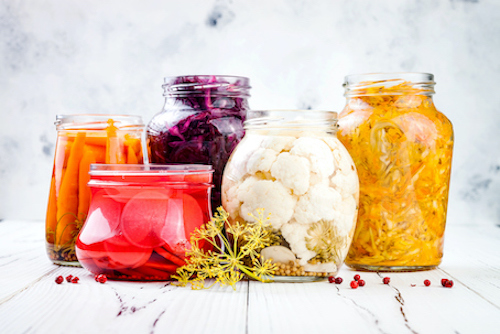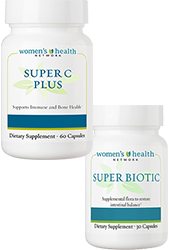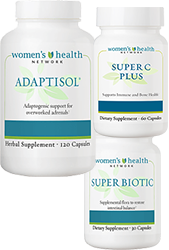By Dr. Sarika Arora, MD
Time to eat more sauerkraut? Researchers recently made the fascinating discovery that countries with low mortality rates (and higher recovery rates) from Covid-19 also happened to be countries in which fermented vegetables make up a common part of people’s diets.

The study, published in Clinical and Translational Allergy, compared Covid-19 infection mortality rates between various European countries. Countries with lower overall Covid death rates included Germany, Austria, Poland, Slovakia, and the Czech Republic. On the other end of the spectrum, Belgium, France, Italy, Spain and the UK had relatively higher Covid fatality rates.
The differences were very significant, and the research team looked for dietary factors that might account for that.
What they found was remarkable: a single dietary factor held statistical significance over whether a country would have better or worse Covid-19 outcomes. And, you guessed it, that deciding factor was eating fermented vegetables.
The countries with lower mortality rates had markedly higher consumption of fermented vegetables (e.g. sauerkraut and fermented pickles) compared to countries with higher mortality rates.
How significant? The connection was too big to be considered a coincidence: For each extra gram per day in average consumption of fermented vegetables, the mortality risk for Covid-19 decreased by 35.4%. That reminds us of the familiar adage that “an ounce of prevention is worth a pound of cure”.
Though not part of this initial analysis, researchers also drew attention in their report to South Korea, a country where kimchi (a traditional fermented vegetable dish made with cabbage) is a dietary staple and where Covid-19 mortality rates are also low.
Of course, even this kind of clear correlation is not proof of a causal connection. But the biological plausibility of a causal connection is very clear. There are at least two major arguments to explain the connection, and both are well-founded in nutritional science.
The first is rooted in what happens to cabbage and other vegetables as they ferment: the fermentation process multiplies the antioxidant activity of the vegetables. Antioxidants are known to protect against cellular damage, supporting the health of immune cells and strengthening immune function.
Even more specifically, antioxidants can be protective for people with hypertension and diabetes, two underlying health conditions that increase risk for serious Covid-19 side effects.
The second is that fermented foods are a super source for prebiotics and probiotics, which support a healty microbiome, which is in turn the foundation of your immune power. (Remember, over 70% of your immune cells are found in your digestive system!)
Researchers also speculate that certain compounds in fermented cabbage may influence ACE2 receptors in the lungs — the entry points where coronavirus stages its infection.

Of course, there could be confounding factors. Maybe eating fermented foods is indicative of following more traditional diets and consuming fewer processed foods. Excess sugar in processed foods harms immune function, and people who make room for sauerkraut and kimchi in their diets may be less likely to eat sugary junk foods.
But the correlation between consumption of fermented vegetables is very strong in this study. And there are so many delicious ways to add them to your diet, if you don’t already indulge.
Since you get the greatest benefit from non-pasteurized fermented foods, it’s a good time to experiment at home with “fresh pickling”, a really easy way to get wonderful flavors and enjoy tremendous variety too.
Here’s a recipe for a simple fermented cabbage slaw that’s an easy and pleasing side dish.
Easy Fermented Slaw
Ingredients:
1 head of green cabbage
4 carrots
1 tbsp coarse pink salt
1 clove garlic
1 tsp celery seed
2 small mason jars with lids (or 1 large jar with lid)
Directions:
Shred vegetables with a food grater into a large bowl and sprinkle with salt and celery seed. Using freshly washed clean hands, massage the salt and seed into the vegetables for 3-4 minutes, until the cabbage has wilted. Vegetables will release water as they wilt. Pack the slaw mixture into a few small mason jars or one large jar, making sure there are no pockets of air and that vegetables are submerged in their own liquid. Pour in any remaining liquid from the bowl to completely cover the slaw.
Cover the jars with the lids, but do not screw lids on tight. (A looser fit permits gases to escape during fermentation.) Place jars in the cupboard for 3-4 days, opening and checking daily to make sure vegetables are submerged and to relieve any air pressure that may have built up. If you need to pack down vegetables to resubmerge, always use a wooden utensil rather than metal as this can affect the fermentation process.
Taste test mixture on day three or four. Is it bubbly, zesty and a little bit spicy? Then it’s done! Use immediately and store leftovers in the fridge (in the same jar) where the slaw will keep for 2-3 months.
Once you get the hang of this, you can adapt this recipe to an endless variety of raw veggies that complement your favorite foods!
 |
Learn more: Best vitamins & nutrients to boost the immune system. |
|
|
Shop for Immune Support |
|












